
If you’ve been using Notion to manage your business operations, you may have noticed that its client-facing functionalities are somewhat limited. While it excels as a knowledge management and collaboration tool, it isn’t designed specifically as a client portal solution. Businesses that require secure document sharing, structured workflows, and seamless communication often need a more specialized alternative.
Fortunately, there are many tools on the market that offer dedicated client portal functionality, enabling businesses to create branded spaces where clients can access information, upload documents, and stay updated on project progress. These alternatives provide features such as automated workflows, permission controls, and integrations with popular business tools.
In this article, we’ll explore the best Notion Client Portal alternatives to help you find a platform that meets your business needs. Whether you’re an agency, freelancer, or enterprise, the right client portal can improve your service delivery, enhance client relationships, and boost operational efficiency.
What is Notion Client Portal?
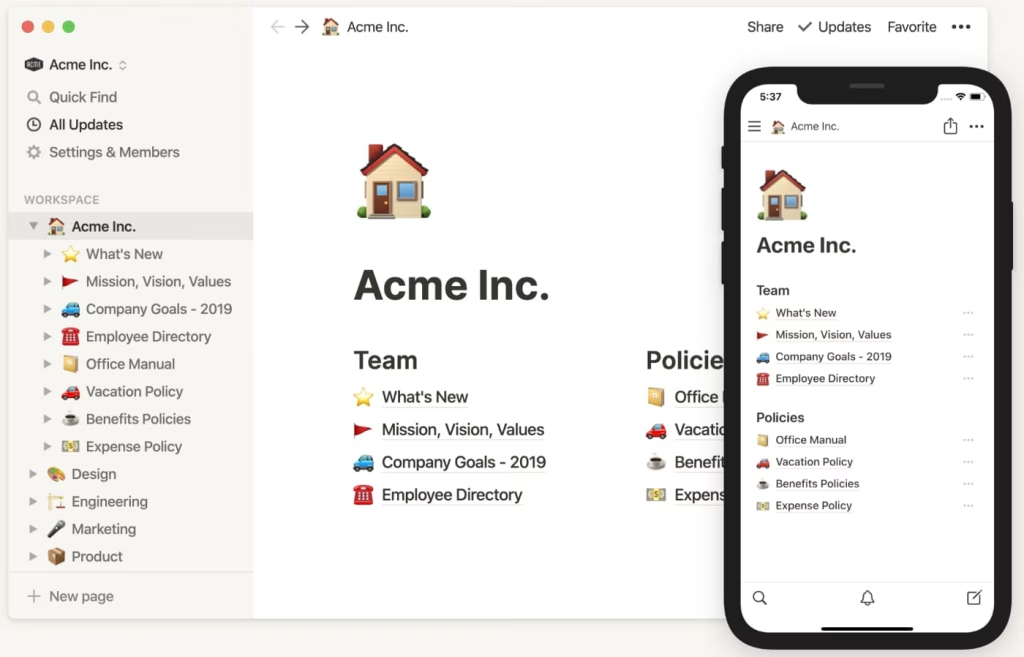
The Notion Client Portal is a way to repurpose Notion’s flexible workspace into a client-facing hub where businesses can manage communication, project updates, and file sharing. While Notion does not provide a built-in client portal, users can create their own by designing structured workspaces with shared access to key resources.
This approach allows teams to collaborate with clients efficiently, offering real-time updates and document organization. However, since Notion is primarily designed for internal team use, it lacks features like role-based access control, automated workflows, and contract approvals, making it less suitable for businesses that need a fully functional client portal.
Pros of Using Notion as a Client Portal
- Highly Flexible – Customize workspaces with dashboards, databases, and templates tailored to your needs.
- Real-Time Collaboration – Supports live editing, comments, and mentions for smooth team-client communication.
- Unified Workspace – Combines document management, project tracking, and database functions in one place.
- Budget-Friendly – More affordable than many dedicated client portal tools.
- Third-Party Integrations – Connects with tools like Slack, Zapier, and Google Drive for enhanced functionality.
Cons of Using Notion as a Client Portal
- Limited Client-Focused Features – Lacks built-in invoicing, direct client messaging, and robust access control.
- Security Limitations – No advanced permission settings, making data control more challenging.
- Branding Restrictions – No white labeling option; clients will see Notion branding.
- No Built-in E-Signatures or Payments – Missing key features for contract approvals and payment processing.
- Setup Complexity – Requires manual configuration to function effectively as a client portal.
Notion Pricing
Free Plan: $0 per user/month – Basic collaboration features, unlimited pages & blocks, and limited file uploads.
Plus Plan: $8/user/month (billed annually) or $10/user/month (billed monthly) – Unlimited file uploads, version history, and collaborative workspaces.
Business Plan: $15/user/month (billed annually) or $18/user/month (billed monthly) – Advanced permissions, SAML SSO, and better admin controls.
Enterprise Plan: Custom Pricing – Everything in Business, plus security & compliance features, dedicated support, and custom integrations.
While Notion can be adapted as a client portal, businesses that require a more structured, secure, and feature-rich solution may benefit from dedicated Notion alternatives designed specifically for client collaboration.
5 More Alternatives to Notion Client Portal
If you’re looking for a client portal alternative to Notion with more robust client-specific features, here are five more platforms that offer better access controls, automation, and secure collaboration.
1. FuseBase (Best for Customizable & AI-Powered Client Portals)
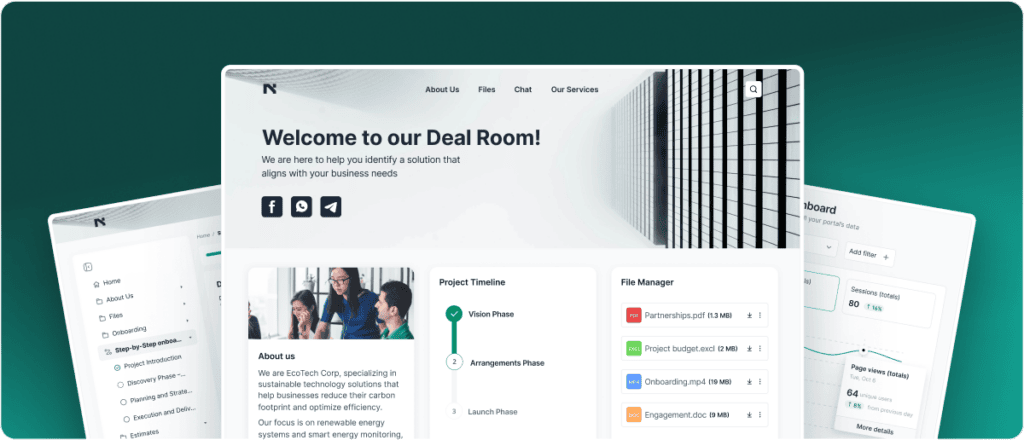
FuseBase is a highly flexible and customizable client portal platform designed for businesses that need secure document sharing, task management, and AI-powered automation. Unlike Notion, it provides granular permission controls, custom branding, and built-in integrations to enhance client collaboration.
Key Features
- Fully customizable workspaces and dashboards
- Secure document storage with advanced permissions
- AI-powered assistant for document search and automation
- White-label branding for a professional client experience
- Integrations with Google Drive, Slack, and project management tools
- Built-in e-signature support for approvals
Pricing: Custom pricing based on business needs.
🚀 Example of how Smart Portals transform your work:
2. Zoho Client Portal (Best for Small Businesses & CRM Integration)
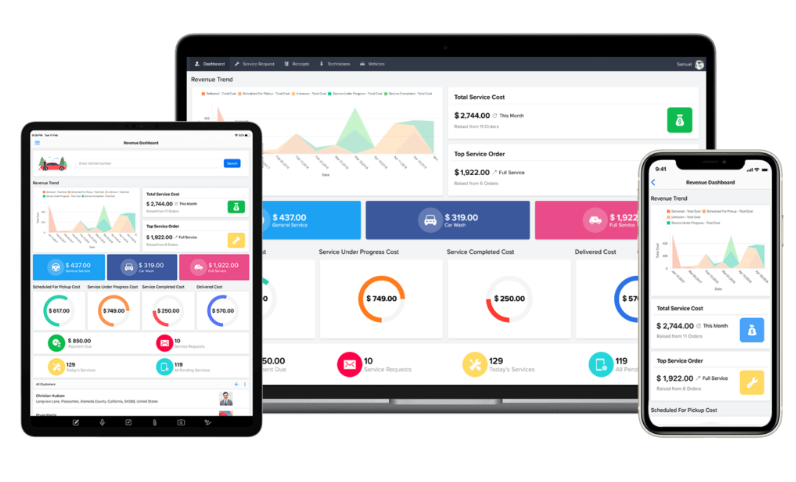
Zoho offers a comprehensive client portal solution as part of its suite of business tools. It allows businesses to manage client communication, share documents, and integrate with Zoho CRM, making it an excellent option for service providers and small businesses.
Key Features
- Seamless integration with Zoho CRM and other Zoho apps
- Secure document sharing and collaboration
- Customizable workflows and task management
- Client self-service options for requesting services and updates
- White-label branding for a professional experience
Pricing: Starts at $14/user/month as part of Zoho One.
3. Huddle (Best for Enterprises & Government Organizations)
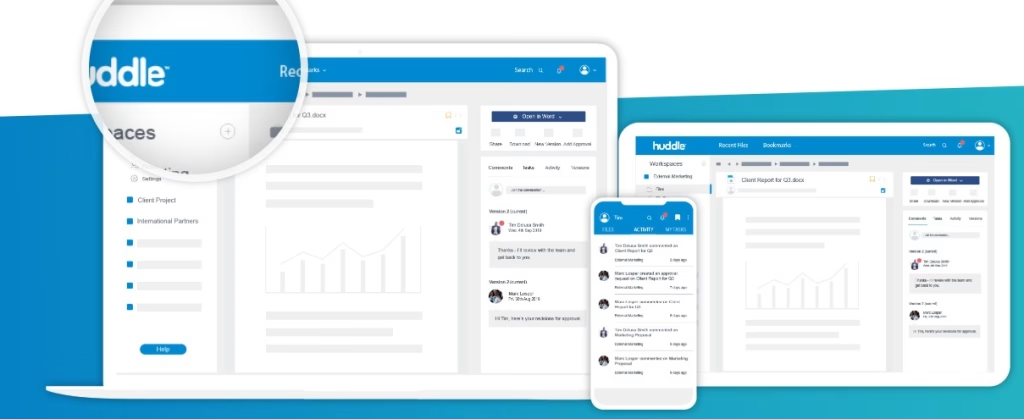
Huddle is a secure collaboration and client portal solution designed for businesses that require strict security measures, such as financial firms, legal professionals, and government agencies. It focuses on document collaboration and secure file sharing.
Key Features
- Bank-grade security with multi-factor authentication
- Advanced permission settings for document control
- Secure client collaboration with built-in approvals
- Automated document versioning and audit trails
- Integrations with Microsoft 365 and Google Drive
Pricing: Custom pricing based on business needs.
✨ Another example of Portals that transform your work:
4. Glasscubes (Best for Internal & External Collaboration)
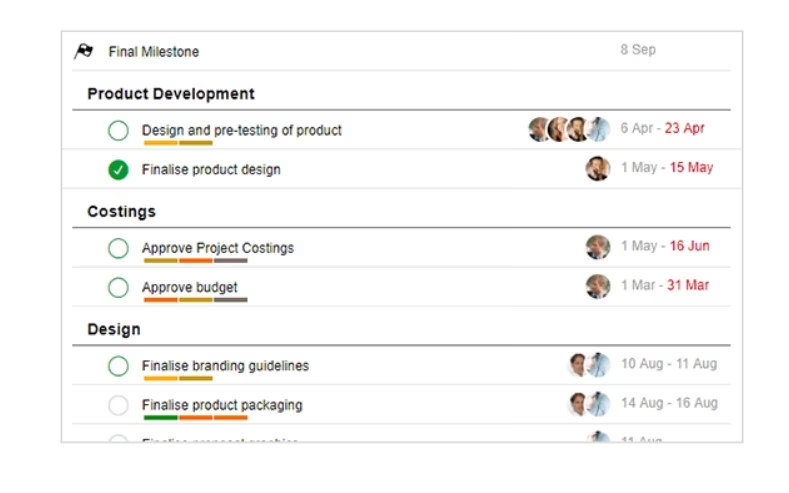
Glasscubes is a cloud-based client portal and collaboration tool that offers a structured way to manage client communication, file sharing, and task management. It’s ideal for businesses that need a central space for working with both clients and teams.
Key Features
- Easy-to-use file-sharing system with version control
- Secure, permission-based access for clients and team members
- Task and project management tools
- Custom branding options for a professional look
- Automated workflows to streamline business processes
Pricing: Starts at £25/month for 5 users.
5. Moxo (Best for End-to-End Client Engagement)
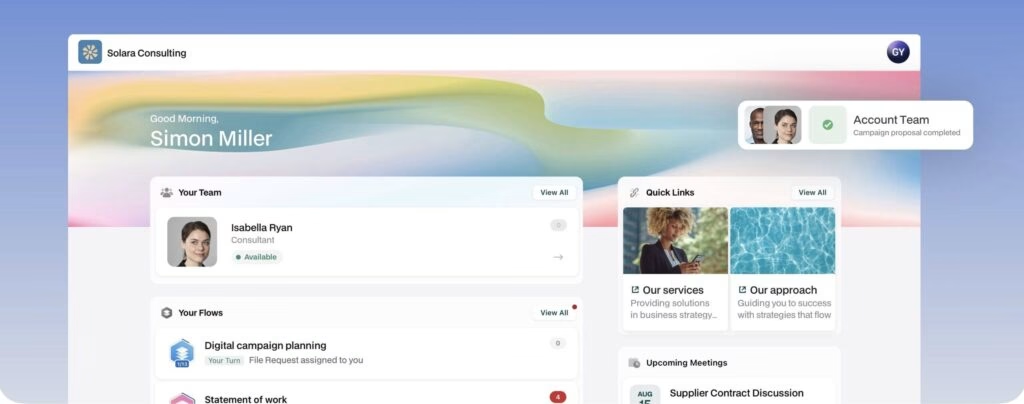
Moxo (formerly known as Moxtra) is a client interaction hub that provides businesses with a dedicated client portal for messaging, file sharing, and workflow automation. It’s great for businesses looking for a mobile-friendly client engagement tool.
Key Features
- Secure messaging and video conferencing for client interactions
- Digital document signing and approval workflows
- Custom branded client portals for a seamless experience
- AI-powered automation for task management
- Bank-grade security and compliance for data protection
Pricing: Custom pricing based on enterprise needs.
Final Thoughts
If you need a dedicated client portal with more features than Notion, these alternatives provide better security, collaboration, and automation. FuseBase stands out as the best alternative, offering powerful AI-powered tools, white-label branding, and granular access controls for businesses needing a fully customizable, client-centric platform.
For businesses that need CRM integration, Zoho is a strong option, while Huddle and Glasscubes focus on secure collaboration. If you’re in need of e-signatures and compliance tracking, MyDocSafe is a great fit. Moxo is ideal for businesses looking for a client engagement hub.
Choosing the right Notion Client Portal alternative depends on your specific needs—whether it’s security, branding, automation, or seamless client collaboration.

